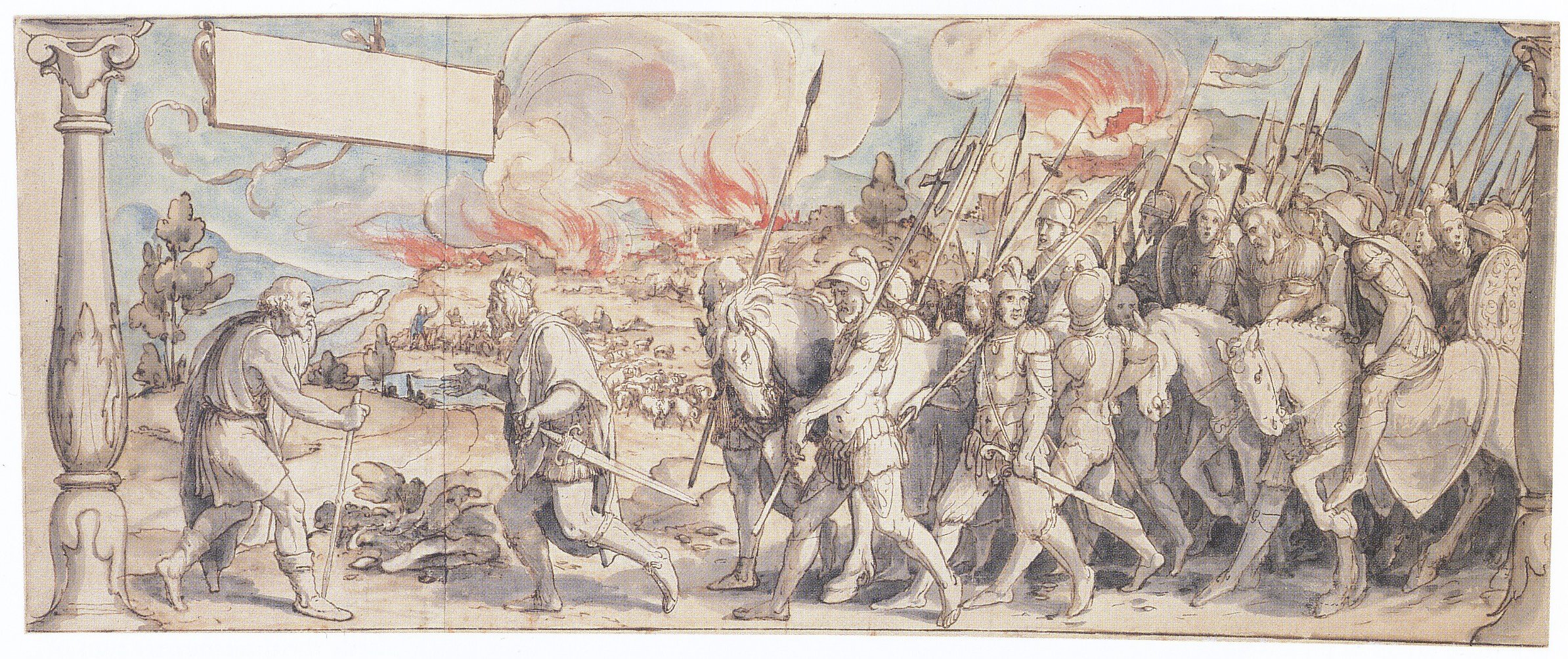 When we left Saul last, he was campaigning against the Philistines. Now he has a much easier task, direct from YHWH as reported by Samuel: that of attacking the nation of Amalek and killing all the men, women, children and livestock. Easy, right?
When we left Saul last, he was campaigning against the Philistines. Now he has a much easier task, direct from YHWH as reported by Samuel: that of attacking the nation of Amalek and killing all the men, women, children and livestock. Easy, right?
Amalek is the most hated nation in the Hebrew Bible because they supposedly attacked Israel during their desert wanderings after the exodus. The Torah describes it as a cowardly attack on the rear to pick off women, children, the sick and the elderly. Therefore, one of the 613 commandments in the Torah is to — always, under all circumstances and at any time — utterly destroy the nation of Amalek, down to the civilians.
I believe this is the first time recorded in the Bible that this commandment is put into practice, several generations after the original attack. Of course the current Amalekites had absolutely nothing to do with the attack, but in the world of the Bible an ethnic group is a single entity regardless of who or what makes up the entity.
Of course the commandment to destroy Amalek receives a rich interpretation in the commentaries and rabbinic literature. At this time collective punishment wasn’t as obvious so the explanation is that the nation of Amalek is intrinsically evil. As a Jewish camp counsellor told me once if I had a time machine and went back to Hitler’s childhood presumably I’d kill him* and the commandment to destroy Amalek is the same. The Bible itself gives the impression that Amalek is just Evil. But when those individuals haven’t actually done anything, this Platonic label becomes meaningless. It’s like right-clicking on a file on your computer to bring up the properties window to see “evil” — it’s just a bit of text and it could have just as well said “good” or “wakalixes“. And historically Amalek has been identified with anyone who wanted to kill Jews from Haman to Hitler. Of course this eventually gets diluted to a bland, watery symbolism.

Samuel cursing Saul
In any case, Saul warns the neighbouring Kenites to evacuate the area before the attack so that he doesn’t cause any collateral damage. I mean he’s not a monster, right! Actually if this common courtesy is not something we do in modern warfare it’s very progressive for the age. The battle is successful but instead of killing the cattle too, Saul has them taken for a sacrifice to YHWH**. And for that, Saul loses YHWH’s tick of approval. As Samuel reproves him (see picture), “because you rejected YHWH’s command, He has rejected you as king.”
So there you have it. YHWH forgives lots but when you’re half-assed in carrying out a mandatory genocide that’s the worst thing you can do. Saul even tries to bargain with Samuel saying he understands now that YHWH’s command to kill the animals was more important than Saul’s whim. He fills up with repentance like a balloon, but for naught. As Samuel says, YHWH “does not deceive or change His mind, for He is not human that He should change His mind”. Which contradicts about 99.99% of the rest of the Bible on repentance, YHWH changing his mind and YHWH deceiving.
Oh, and along with the cattle Saul spares Agag the Amalekite king. I can just imagine Samuel berating Saul (“can’t you even get a simple act of regicide right?”). Samuel then takes matters into his own hands and personally cuts down an understandably-somber Agag.
*Actually I don’t think I’d kill him — as President Bush said in the Simpsons episode about the Stonecutters, “can’t we just do something to his voicebox?”
**Actually the mainline rabbinic interpretation is that Saul sold the animals and used the proceeds to buy sacrificial animals. For the prohibition of using the animals of idolaters for sacrifice found in the Talmud must needs be retrofitted to Biblical characters millenia before, since the assumption was that pretty much every part of Judaism was eternal.




0 Comments